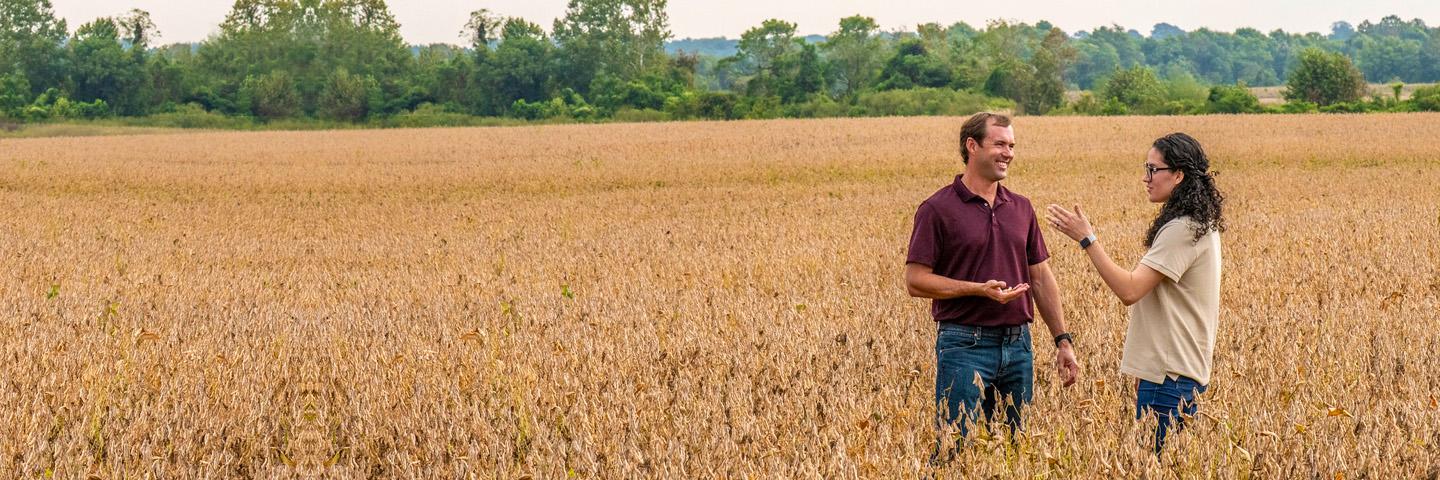
NRCS provides conservation planning and technical assistance to agricultural producers and others who make natural resource management decisions. Technical service providers (TSPs) work on behalf of the producer to offer planning, design, and implementation services that meet NRCS criteria.
What is a Technical Service Provider or TSP?
TSPs include individuals, private businesses, American Indian Tribes, nonprofit organizations, and public agencies. TSPs offer services to plan, design, and implement conservation practices. TSPs expand the number and availability of conservation technical experts capable of offering customized, one-on-one conservation advice to agricultural producers and private forest landowners.
Who can use a TSP?
When funds are available, agricultural producers participating in certain activities in NRCS conservation programs can hire a TSP. As a producer, you will need to work with your local NRCS office staff to make an application for financial assistance and have an obligated contract prior to hiring a TSP.
What technical service activities are offered?
TSP conservation work falls into two broad categories:
- Conservation planning activities
- Planning, design, and implementation of conservation practices
A conservation planning activity (CPA) completed by a TSP includes an inventory and assessment of the operation. The CPA also documents resource concerns and identifies conservation practices that can treat the concerns. A design and implementation activity (DIA) is a design or schedule for practices to be implemented to treat the resource concern.
Farmers, ranchers, and forest landowners can use conservation planning to address specific natural resource objectives such as improved water quality, energy conservation, or transition to organic agriculture. Producers can apply for financial assistance through the Environmental Quality Incentives Program (EQIP) for the development and implementation of CPAs, DIAs, and practices. Only certified TSPs can assist with the development of CPAs and DIAs.
If approved for an EQIP contract that includes TSP services, the producer chooses a certified TSP from an NRCS-approved list and negotiates payment for the selected TSP services.
How do you locate a TSP?
Eligible program participants can find a certified TSP on the national directory for finding a TSP. They can also contact their local USDA service center who can assist.
What are the expectations of a TSP?
The Technical Service Provider Certification Agreement states what is required of a TSP. The agreement indirectly states expectations. The expectations are that the certified TSP will know NRCS conservation practice standards, specifications, and statements of work located within the Field Office Technical Guide (FOTG). When a TSP signs off on a conservation plan or certification of a practice, they are stating that plan or practice meets NRCS standards and specifications, and all required documents outlined on the statement of work and/or conservation planning activity for each practice has been provided to the producer.
How does a TSP get certified?
To begin the process of becoming a Technical Service Provider, please contact one of the Regional Coordinators assigned to your state. A map of the Regional Coordinators is found here.
The steps to becoming a TSP are:
- Create your USDA Login.gov Account
- Log into NRCS TSP Registry
- Complete verification of your Login.gov account
- TSP Training requirements – Log in and complete via AgLearn
- Obtain TSP certification (review requirements and submit an application)
Full details on how to complete each step can be found here.
TSP Reminders:
- Don’t forget to recertify your business, if applicable. Detailed instructions can be found on the national TSP website.
- Make sure to update any licenses you have to prevent a lapse in certification.
- Your TSP certification is good for three years. You can start a renewal application up to 120 days before your certification is set to expire. It is recommended to start this process sooner rather than later to prevent a lapse in certification.
- You can modify your certification at any time to add or remove practices, activities, and/or locations.
- Make sure to save all AgLearn training certificates and don’t forget to upload them to Registry when you’re done.
- NRCS can offer in-person trainings at your office to explain program/practice requirements and various tools to use. Contact the State TSP Coordinator to schedule a meeting.
- Communication with your local field office is crucial to the successfulness of your clients’ contracts. Early and often communication can eliminate almost all issues down the road. Contact the State TSP Coordinator if you need assistance coordinating a meeting with the local office.
- The Certified Crop Advisor (CCA) professional credentials are recognized by the TSP program for ALL states. The TSP does not need to have individual state recognition to meet the Professional License option.
The Professional Engineering (PE) license IS state-specific. Individuals who are interested in the Professional License option in Minnesota for certain engineering practices need to be professionally licensed in Minnesota.
Additional Information
EQIP CPAs, DIAs, and CEMAs
Learn about EQIP Conservation Planning Activities (CPAs), Design and Implementation Activities (DIAs), and Conservation Evaluation and Monitoring Activities (CEMAs).
Additional Resources for Landowners and Certified Technical Service Providers
The Natural Resources Conservation Service (NRCS) offers free information to help Technical Service Providers work with eligible program participants. Below is a list of available resources:
Learn More

